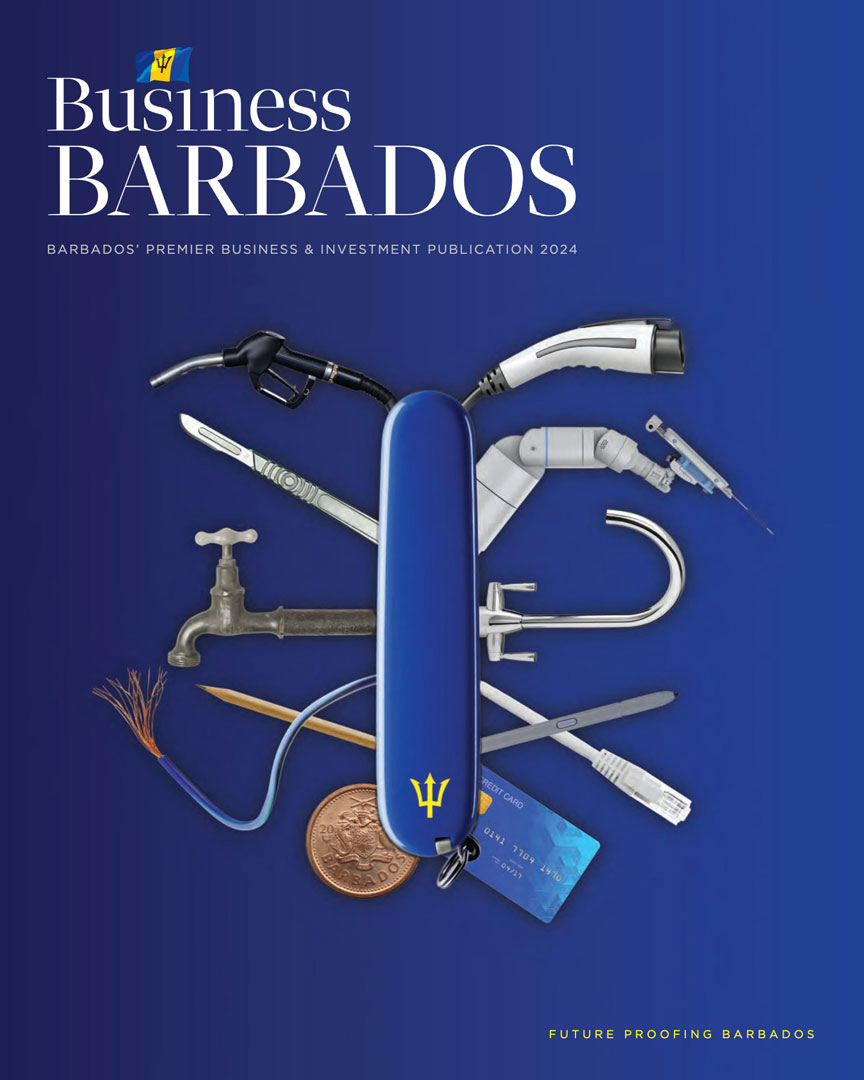
Since the global minimum corporate tax rate proposed by the Organisation for Economic Cooperation and Development (OECD) started to gain traction while the developed countries of the world tried to rebalance their budgets in the grips of a global pandemic, the spotlight has been cast on tax competitive jurisdictions such as Barbados. Some have questioned whether this prospect of having to raise its tax floor to 15 percent from its current ceiling of 5 percent would cause Barbados to lose its advantage in attracting highearning multinational companies from across the globe. However, this is based on a very narrow view of what Barbados has to offer. Barbados has never been interested in a ‘race to the bottom’ in providing tax concessions.
Indeed, Barbados continues to maintain its rank among the top 10 captive insurance domiciles in the world. This is because captive managers are less focused on tax advantages when they choose a jurisdiction, but rather more interested in how Barbados maximises their strategic, financial and operational advantages. Among independent consultants who evaluate these areas, Barbados continues to rank highly for the stability and predictability of its business environment; the speed at which applications are processed; its history of regulatory experience; and how the jurisdiction is perceived (we have been consistently indexed among the lowest territories within the Americas for perception of corruption by the Germanbased Transparency International).
Apart from captive business, these are high-value features for many investors and business leaders. It is therefore no wonder that Barbados is also the fourth largest recipient of Canadian direct investment in the world, with six of the largest Canadian banks maintaining a presence here, either through their retail banking, wealth management or reinsurance business units. Indeed, BIBA was formed a quarter-century ago through the amalgamation of several representative organisations for Canadian offshore banks, international business companies, and exempt insurance companies, which were domiciled here and still maintain a presence in Barbados to this day in many cases.
Barbados continues to attract business from Canada, many other Commonwealth nations and the United Kingdom, because our legal framework is grounded in English Common Law and our corporate laws are modelled after the Canadian system. Home to a Westminster system of Parliament since 1639, Barbados also holds a solid reputation for political stability, while also enjoying an enviable record of social stability and security relative to many of its neighbours in the hemisphere. Barbados has a strong regulatory framework comprising the Central Bank of Barbados, the Financial Services Commission, the Corporate Affairs and Intellectual Property Office, the International Business Division of the Ministry of Energy and Business, and the Barbados Revenue Authority, which offer right-sized regulations that comply with international best practice, while being suited to a small, open-economy.
Unfortunately, the economic challenges raised by the global pandemic stymied local authorities in their efforts over the past three years to be as responsive to international obligations as has been our reputation, but open dialogue is being maintained with the OECD, the European Commission and the Financial Action Task Force to respond to and remediate any deficiencies that could threaten to place Barbados on another blacklist.
While being a tax competitive jurisdiction is not our only selling point, we do have a deep network of Double Taxation Agreements (DTAs), Bilateral Investment Treaties (BITS) and Tax Information Exchange Agreements (TIEAs) that makes us unique in this hemisphere. At the latest count we have 40 DTAs in force, including the Caribbean Community (CARICOM) multilateral DTA, and key trading partners in the United Kingdom, Europe, North and South Americas, Asia, Africa and the Middle East. Added to that, we have nine BITs and five TIEAs in force in the same regions. These agreements are compliant with the Organization for Economic Cooperation and Development (OECD) Global Forum requirements. Indeed, since our first tax blacklisting challenge in the 1990s, Barbados has taken every challenge by the international regulatory framework as an opportunity to strengthen and improve our compliance efforts and internal regulations to remain a lower risk, high value jurisdiction for investors. Our geographic proximity and various tax agreements with Mexico, Panama, and Venezuela, and our airlift agreement with Copa Airlines, make Barbados a natural gateway into Latin America. For businesses outside of this hemisphere who want to engage with the Latin American markets, but which are cautious of directly exposing themselves to the political, financial, and other risks that could come through direct investment, a Barbados structure can assist in mitigating against the risk from some of the more volatile situations to which new entrants could find themselves exposed.
Barbados has excellent human resource capital in the form of a well-educated, highly skilled workforce equipped with the knowledge and acumen to support a variety of international business clientele. Barbados presents the right conditions for organic growth through local employment, thus saving international investors high relocation costs associated with bringing in international talent. And it is because of our people that the island is known the world over for not only its welcoming investment climate, but also its welcoming of those who choose to relocate here and make a positive contribution to our society and economy, whether on a temporary or more permanent basis.
By creating the remote worker/digital nomad visa termed the ‘Welcome Stamp’ in late 2020 for overseas middle to high-income earners, the island signalled that it was prepared to embrace and not ostracise thousands of entrepreneurs, business owners and skilled overseas nationals who were uncomfortable or downright scared of seeing out the COVID-19 pandemic in their home countries. The warmth of our hospitality, our climate and the cosmopolitan vibe in an island-setting offered by our urban centres, attracted over 4,000 ‘Welcome Stampers’, who were then given the option to renew their status times at the end of the 12 months or apply for a Special Entry and Reside Permit if they qualified. Once granted an SERP, qualifying high net worth individuals (HNWIs) and their dependents can live in Barbados with few restrictions for an indefinite or a fixed period, depending on the age of the individual and the particular category the individual falls under – a retired person, an employed person or an entrepreneur. Eligible individuals are taxed only on their income that is generated locally or remitted to Barbados.
Barbados is attractive not only to individual investors or business executives but their families as well because of the quality of life that is available here. The public and private school systems are highly rated across the world and students at some secondary-level schools can even pursue their international baccalaureate qualifications. This allows for a near seamless transfer of students and their grades from Barbados to institutions of higher learning globally. Not only is our education system internationally accredited but so is our healthcare system. Along with our primary public healthcare facility, the Queen Elizabeth Hospital, Barbados also offers 24-hour emergency services at several private clinics across the island. It also boasts an internationally sought after fertility clinic and a new gynaecological clinic specialising in pre- and postmenopausal care that has a growing clientele from Latin America and the wider Caribbean.
With our robust telecommunications infrastructure and continuously expanding international flight agreements, including expansions into the African continent, Bridgetown is well-positioned for connections with many cities across the globe. As we learn to live with COVID, our annual calendar of entertainment activities is ramping back up with events designed to appeal to all ages and cultural backgrounds. The number of flag hotels on the island is growing as the Hyatt and Wyndham hotel groups position themselves to join the Hilton, Radisson and Marriott properties that already enjoy year-round strong occupancy levels. Food culture continues to evolve and the wide variety of culinary offerings, including some Zagat-rated restaurants, can delight a variety of palates.
All of that, added to our geographic position just north of the equator while slightly outside of the hurricane belt, makes Barbados one of the best places in the world to live, work and play for the discerning global traveller.













